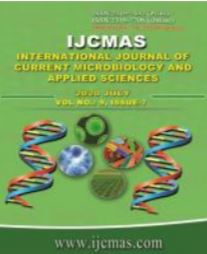


 National Academy of Agricultural Sciences (NAAS)
National Academy of Agricultural Sciences (NAAS)

|
PRINT ISSN : 2319-7692
Online ISSN : 2319-7706 Issues : 12 per year Publisher : Excellent Publishers Email : editorijcmas@gmail.com / submit@ijcmas.com Editor-in-chief: Dr.M.Prakash Index Copernicus ICV 2018: 95.39 NAAS RATING 2020: 5.38 |
Autism spectrum disorder (ASD) is a condition related to mental development disability that impacts how a person perceives and socializes with others, causing problems in behaviour, social interaction and communication. The disorder also includes limited and repetitive patterns of behaviour. Moreover, autism has broad variation in the type and severity of disorder children experience and this disorder can occurs in any strata of society, therefore it is known as “spectrum disorder”. Despite that ASD has long time effect, however, proper medical treatment can aid to better recovery and functioning of the children to interact within their social circle. Consequently, assistive technology has been a core link in the chain that enables children with disabilities to lead a life where they enjoy and exercise their rights rather than being destitute. This review paper focuses on investigating the various technologies and its’ effect on special need children to improve their performance in education and assist in their rehabilitation. This paper expound about the assistive technology and its relation with autism disorder. The study is supported by literature reviewed through various sources such as Google scholar, Springer, Pub Med and books. In conclusion, assistive technologies work as imperative tool which seriously boost autistic children confidence in independently functioning skill. Indeed, it also improves the communication skill and promotes interaction, cognitive process and social development. The framework of the study identifies the significance of technology, which enhance the constructive skill of the autistic children. Furthermore, it highlights the approach to emerging assistive device which initiate a better quality of life for the autistic children.
 |
 |
 |
 |
 |